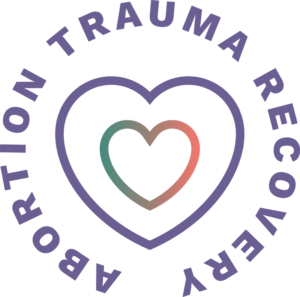Know What to Look For
Abortion Trauma is a serious mental health issue that health professionals are routinely dealing with, but for reasons both political and related to the trauma itself, if is not being recognised. Unrecognised, untreated, and the incidence of severe psychological trauma unknown, it tends to be trans-generational – adversely impacting relationships and families.
At present understood to be a type of post-traumatic stress disorder (PTSD), abortion trauma is inclined to (but not always) have a delayed onset (months/years) that is often precipitated by a triggering event.
The cardinal features of abortion trauma are denial and suppression, meaning, most women and men do not consciously connect the problems they are experiencing with their abortion(s). The trauma is often treated as symptomatic and not causative, due to the lack of awareness and recognition of this serious health issue amongst community, health and welfare professionals.
Symptoms and severity will vary with individuals.
SYMPTOMS OF ABORTION TRAUMA
While ‘crumbling inside’, many women and men are able to ‘keep up appearances’. One of the first signs that things are not right after the abortion is a loss of joy of living.
‘You can never go back to being the person you were before the abortion’, is a familiar statement from post abortion women.
OTHER SYMPTOMS: THE TOXIC COCKTAIL

ABORTION TRAUMA SYMPTOMS/EPISODES
Abortion trauma episodes are a very real experience that vary from person to person. They may include hallucinations (auditory and visual), sleep disorders, flashbacks, and anticipation of catastrophe. The most common episodes reported are:
- Visually seeing, and daydreaming about, children the age their child would have been.
- Unexplainable sounds of a child crying.
- Adverse reactions to the sound of a vacuum, drill etc.
- Adverse reactions having to sit in the dentist chair.
- Adverse reactions to the smell of a hospital or any surgical or chemical environment.
- Inability to go to certain locations.
TRIGGERING EVENTS
Three years to the anniversary date of her abortion, Lorena Bobbitt cut off the penis of her abusive husband (1993).
Like any form of recognised trauma, abortion trauma is often precipitated by a ‘trigger’ event.
Common triggering events may include:
- Anniversary dates:
- Date of Abortion
- Due date of birth
- Birth of a subsequent child
- Birth of relative or friend’s child or grandchild
- Miscarriage
- Menstrual cycle
- Menopause
- Daughter reaches the age when the mother experienced abortion
- Other events associated with children or reproduction:
- Baby Showers
- Christenings/ Naming days
- Birthday Parties
- Meaningful celebrations
- A death experience
- Relationship break-down
- A personal crisis
- Smells, sounds, location or being again in a position associated with the abortion

